Ace Hotels is just about to open in Australia
By creating spaces that the locals love, Ace Hotels is not just catering for paying guests but to the surrounding community – and Sydney’s next.
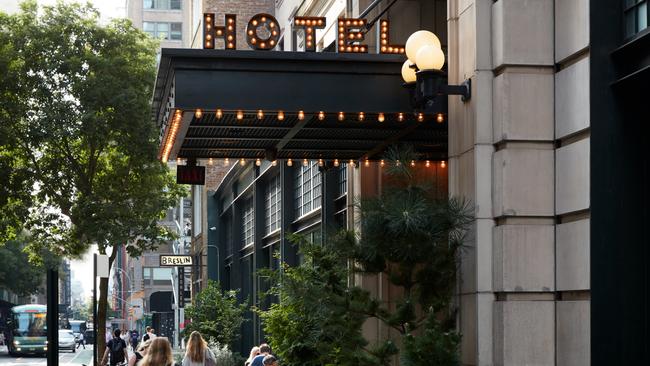
When the first Ace Hotel opened in Seattle in 1999, it turned the industry on its head by doing something entirely unconventional: creating a place where locals – not just tourists and business travellers (aka paying guests) – wanted to hang out in its lobby, catch-up with friends or even work.
It was a much-needed antidote to big international hotel chains the same familiar interiors regardless of where you were in the world. Guests would only sleep there and lobbies were just for passing through on the way out to a business meeting or a theatre show.
“What the founders, Alex Calderwood, Wade Weigel and Doug Herrick, did in 1999 was create a place for their friends to come and hang out,” says Brad Wilson, president of Ace Hotel Group. “They were all doing nightclubs and experiential marketing things and bringing people out to Seattle, but there was no place for them to stay. So the idea was to make one where all their friends would love to stay. It was very residential, very casual, but chic enough to feel special.”
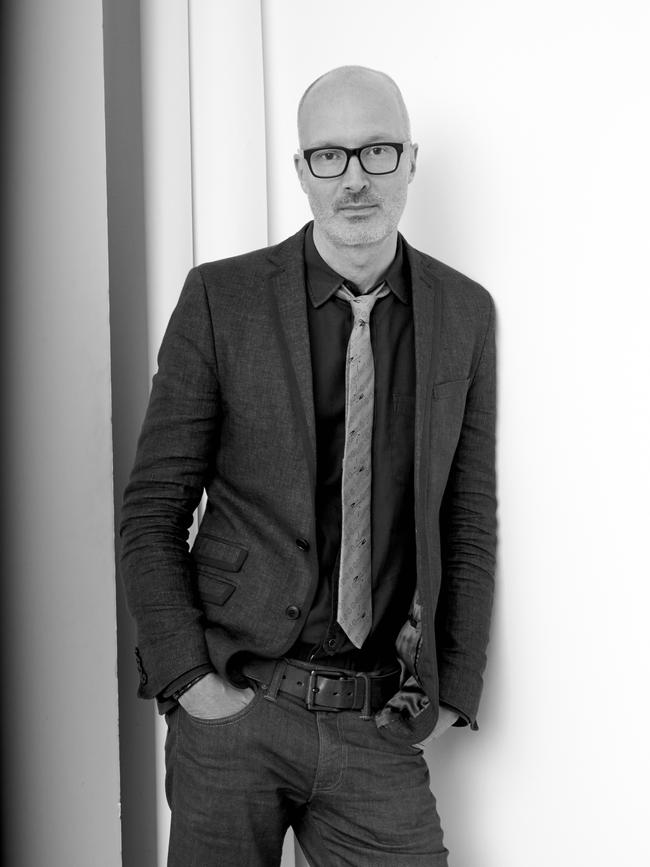
Calderwood, who passed away at the age of 47 in 2013, drove the design of the hotel, curating a mixture of eclectic vintage and new furniture, amazing local art (street artist Kaws even adorned some walls), and doing fairly radical things at the time such as installing turntables in all the rooms and offering free bikes for guests. None of the 28 rooms in the place were the same.
The other defining – and game-changing – feature of that first Ace Hotel was that it wasn’t in very touristy part of town. “We were stupid enough to take it with all its tenants in it,” Weigel told The New York Times in 2011 of the boarding house the trio bought in the then dodgy suburb of Belltown that became Ace Hotel. “It was just a nightmare. It was a bunch of crazies. People would throw toilets out the window.”
But by heading away from traditional CBDs and tourist hubs, Ace Hotel tapped into the creative communities that were revitalising inner cities with great food, bars and art scenes. The hotel became part of that community and was instantly cool as everyone wanted to be seen there.
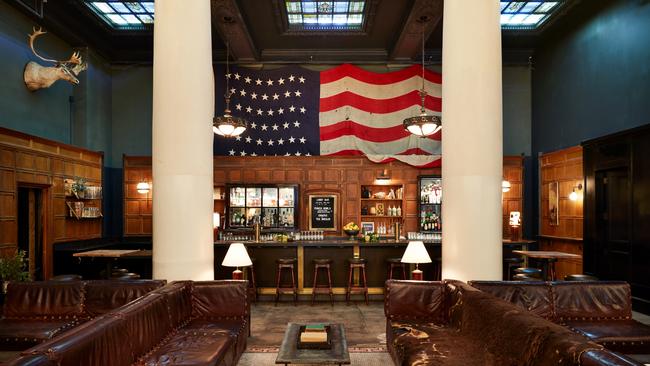
“The original idea did not come from wanting to change the hotel business,” Wilson tells WISH from New York. “It came from having a hotel for friends – the front door was painted ‘Ace: A Friendly Place’ – and it’s interesting because a lot of what we are today is still connected to that idea.”
In the past 20 years ,Ace Hotel has only solidified its reputation for not only being a disrupter in the travel industry (its approach has been replicated by many other hotels around the world), but also for actually creating spaces in cities that people want to be in. The lobby in the Ace Hotel in downtown Manhattan took on legendary status when locals embraced the communal tables and free Wi-Fi as a place to work, conduct meetings and just be inspired by those around them.
There are now eight Ace Hotels in the US, one in Japan and one in Canada, and in the next few months Ace Hotel in Sydney will open its doors after three years of design, construction and Covid-19 delays. Not surprisingly, Wilson and his team have not chosen to go anywhere near Sydney’s famous harbour, instead selecting a site in Surry Hills, the edgy southern end of the city known for its creatives.
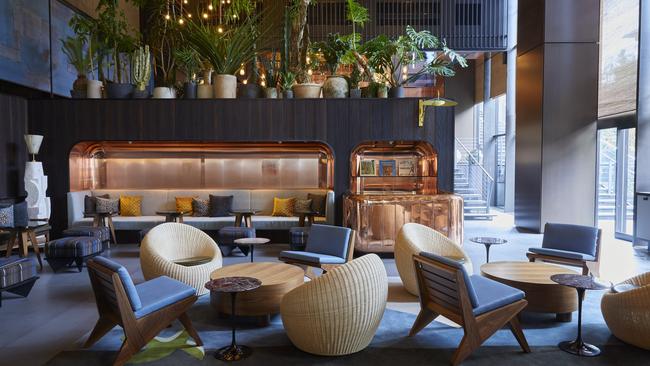
The 264-room hotel is built on the site of a historic brick factory – called Tyne House – and the façade has been incorporated in the $350 million design by local architect Bates Smart. Ace Hotel Group has gone into partnership with local developer Golden Age, and has hired Melbourne designer David Flack and his namesake studio in Fitzroy, Melbourne, to do the interiors throughout the property.
“Our hotels tend to be part of the neighbourhood they live in and a lot of what we do in our process is we try to localise,” Wilson says. “So we work closely with local designers and artists to make our spaces really be of place. David is amazing and his eye for colour and space is completely singular. He is a dream design collaborator for our first hotel in Australia.”
The hotel will also have a ground floor restaurant, a lobby bar and a coffee shop, as well as a rooftop eatery and bar. “There is a lot of indoor-outdoor living and references to natural materials,” explains Wilson. “I think it’s really special and beautiful. I think it is not something people have seen before and I really love that. It feels residential and I think it’s going to be a place where people want to be. And I think it brings something to Sydney that isn’t available right now when it comes to hotels.”
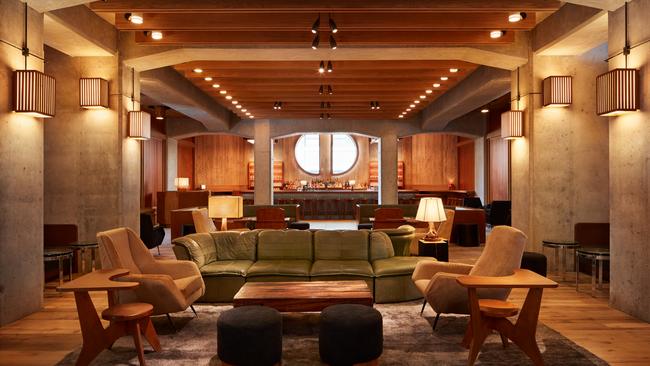
He also knows the importance of good food and wine in drawing the locals to a new premises, and that’s why it’s always been a priority. As is entertainment, from live music to art shows to poetry readings.
“By having interesting chef-driven restaurants and great bars and places to hang out, you connect with the community and the neighbourhood,” he says. “Hotels without strong food and beverages are just places for tourists visiting. It’s like what locals will go there?”
Despite the pandemic slowing everything down, it has been a busy few years for Wilson, who has overseen the opening of an Ace Hotel in Kyoto (designed by none other than Japanese architect Kengo Kumo), another one in Toronto in Canada (opening this year) and a new Ace in New York, this time in Brooklyn.
“We’re happy to come out of Covid with a lot of projects and a lot of things opening,” he tells WISH.
Wilson has been at the Ace Hotel Group since 2011 when he was brought on by Calderwood to expand the hotels internationally. He has been in hospitality all his life (his mother was a caterer and worked on events), and he had launched hotels for Japan Airlines and even worked with Barry Sternlicht to open the first W hotel in New York in 1998 before coming over to Ace.
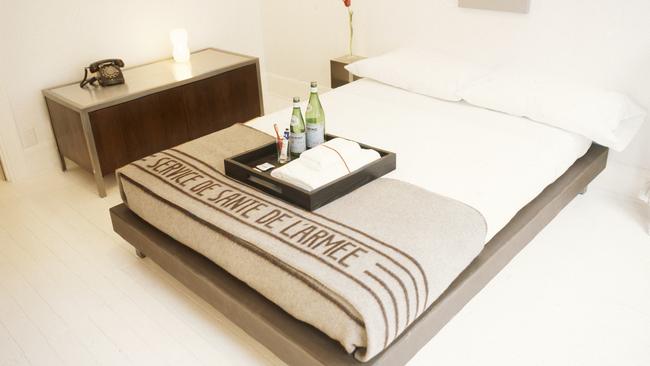
“I love art and design and people,” he says when WISH asks him what he likes most about working in hotels. “And so for me it’s a little niche where I can put all these things I like to do into one little package, and to make it even better it is something that people like.”
Like the rest of us, Wilson has spent the better part of the past two years grounded thanks to the pandemic, but he felt it probably more than most as he used to be on the road for at least 80 per cent of his time. “Obviously visiting our hotels and projects and then finding new projects results in a lot of travel,” he says. “And I also love travelling for personal experience. I learn a lot from travelling and I am very anxious to get back to it.” But he has managed to fit in trips between variant waves. “My most favourite recent place is Mexico City – it is one of the best cities in the world, I think,” he says. “The culture is so deep, the people are so lovely and the food is so very good.”
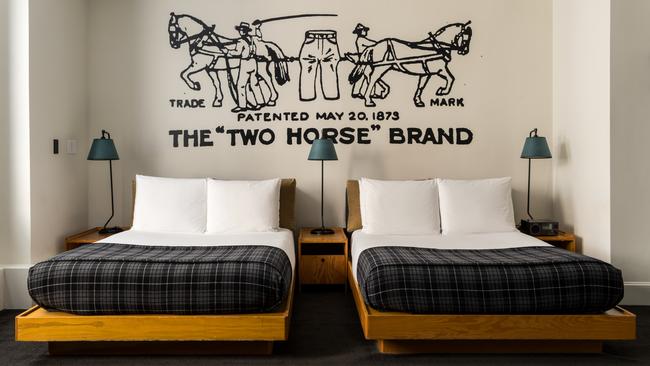
As for what travel looks like in the post-pandemic world, Wilson believes it will be different. The human desire for exploring will remain, but the new flexibility of remote working and its associated technology will transform the way people travel. He thinks that business and leisure travel may no longer be differentiated.
“I think there will actually be more ability to travel because we can work from anywhere now,” he contends. “So it may very well be that you go somewhere, be entertained, see something or someone and then get your work done as well.
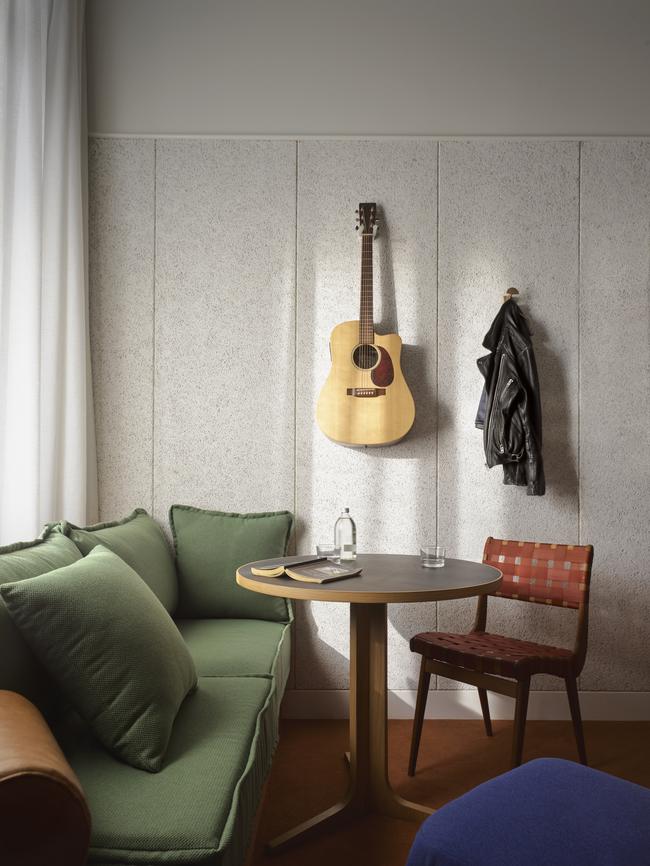
“This means hotels will have to accommodate the ability to do work and one thing that has already helped us in this environment is that we have always had these lobbies that people work in. So the idea is to have a hotel where you can work but still have an experience.”
And experience is something that Ace Hotel has been doing since it opened in 1999 by making it not only about the experience of the paying guest but also the experience of the local resident.
“When people spend time in our spaces, they are experiencing art, people, community and they feel part of something,” Wilson says. “We want it to add to your trip and I get notes all the time from people saying I never expected it but my favourite part of the trip was the hotel.”


To join the conversation, please log in. Don't have an account? Register
Join the conversation, you are commenting as Logout